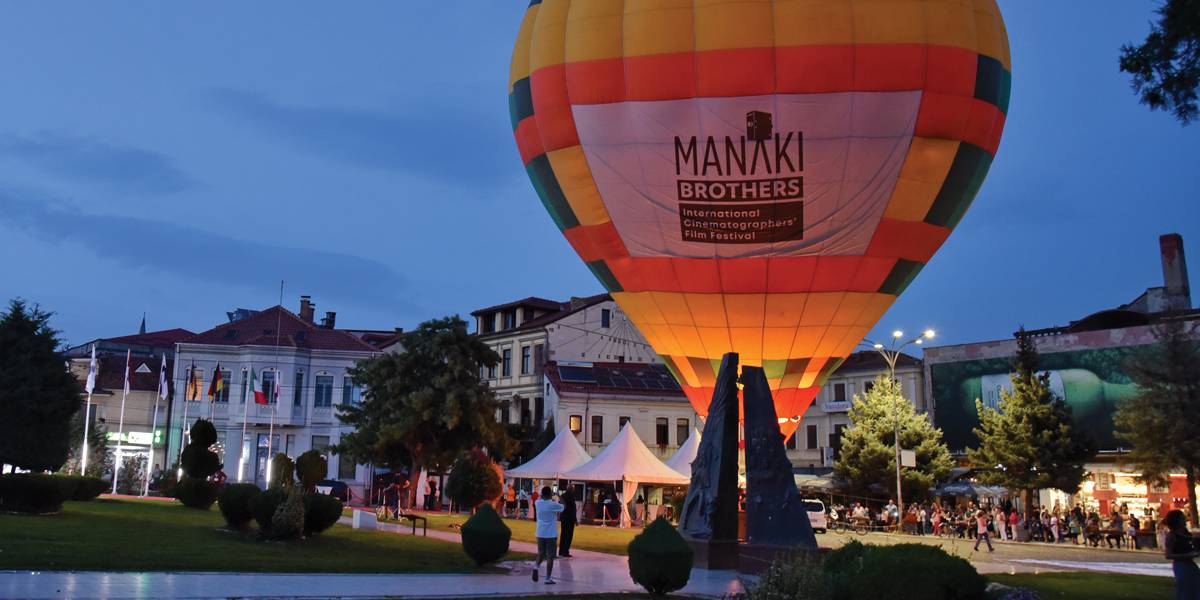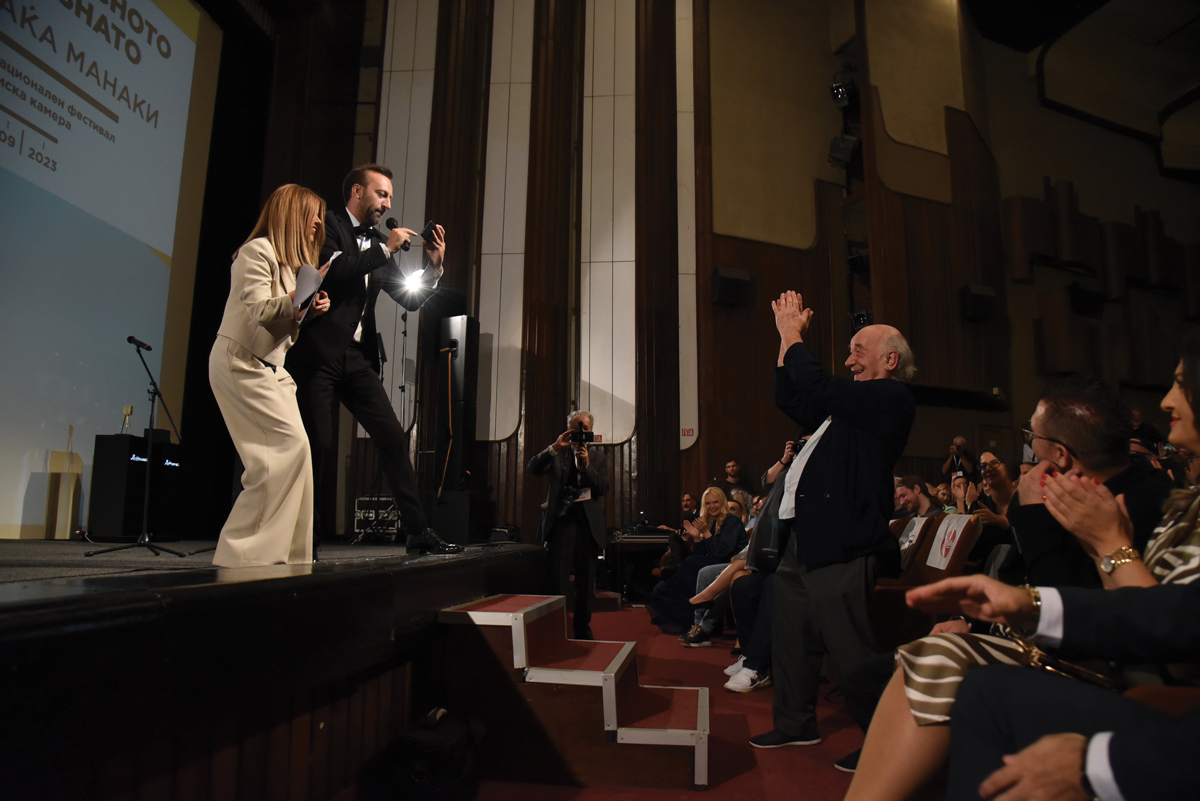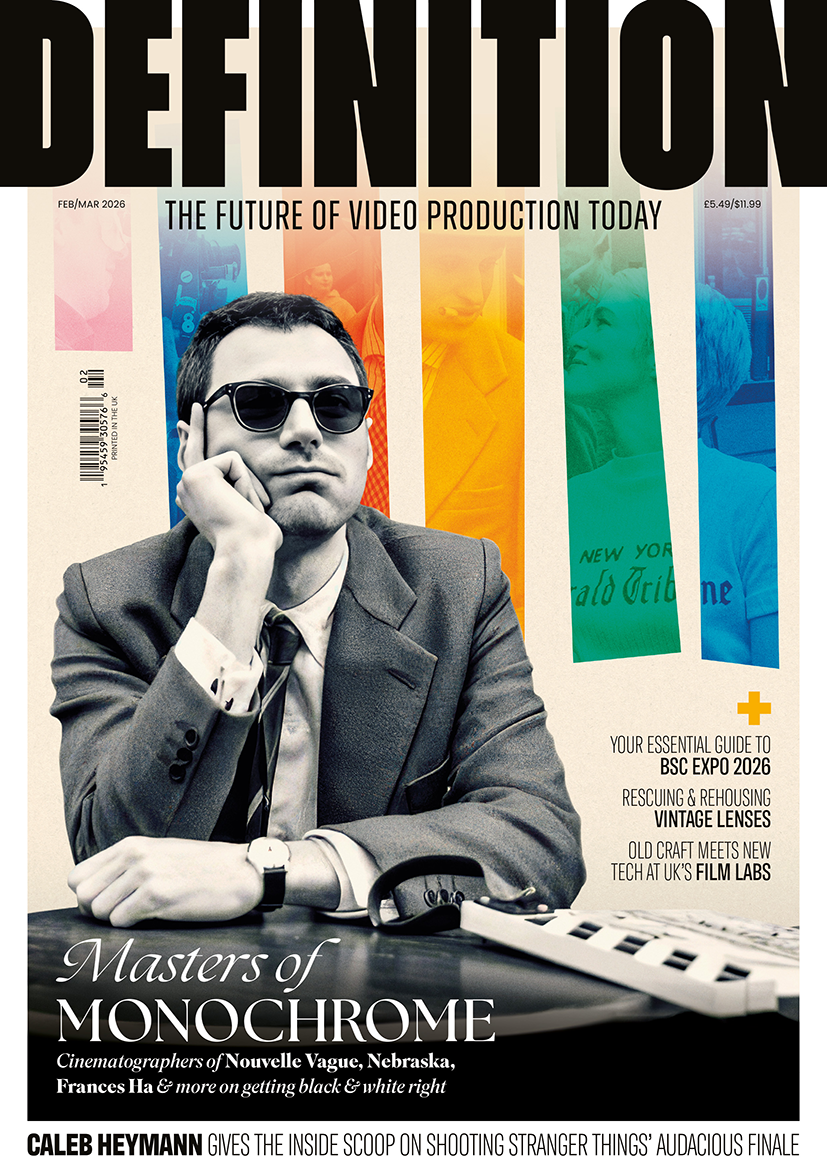
Manaki Brothers Film Festival
Posted on Aug 8, 2024 by Samara Husbands
Manaki Magic
Celebrating its 45th anniversary, the Manaki Brothers Film Festival is one of the most unique celebrations of cinematography on Earth. Nicola Foley sits down with festival director Simeon Damevski to find out more
IMAGES Diogen Hadzi-Kosta Milevski
Few events in the world of cinematography hold the reverence and legacy of the Manaki Brothers Film Festival. Attracting the cream of the craft to a quaint town in North Macedonia called Bitola each year, the gathering has hosted luminaries from Roger Deakins to Sven Nykvist and Vittorio Storaro, garnering a reputation as one of the finest film festivals in the world.
Its fundamental ethos, according to current director Simeon Damevski, is to honour the work of cinematographers: “Without them, the art of film wouldn’t exist. They are the unsung heroes behind every great film,” he enthuses. “This is the essence of the festival – we care about cinematographers and think of them as part of our family. We want to help grow their talent and promote them. We serve as a platform around the world to promote the new da Vincis and Rembrandts of the modern world; people who embody that understanding of what the old masters were.”
Damevski was inspired to get involved because of a personal ‘soft spot’ for cinematographers which dates back to his days as an actor. “My growth as an actor is directly attached to the cooperation with cinematographers – they helped me become a better actor,” he explains. “I am also always so surprised by the humility and decency of these artists – even these big names who make it to the Oscars. They still behave like they’re the humble labour workers on-set. I have so much respect for them.”
The festival’s 45-year heritage traces back to the Manaki brothers, early pioneers of cinematography in the region. Aromanians born in the Ottoman Empire (which Macedonia was part of at the time), the pair were originally from a Greek village but found a home in Bitola, where they opened a photography studio. They were, says Damevski, “strange folk for that time – they used to walk around town with a piglet instead of a dog! But they were very much ahead of their time in many ways.”
During a visit to London in 1905, the brothers acquired a film camera – a 35mm Urban Bioscope – on which they started shooting documentaries. Their first offering, titled The Weavers, was a 60-second, silent black & white film that depicted their grandmother and aunts spinning wool. It is believed to be the first film shot in the Ottoman Balkans.
As their work grew in prominence, the brothers received a royal invitation to become the official photographers of the Ottoman sultan and the king of Yugoslavia, Alexander Karađorđević. They would also go on to open their own movie theatre and document seismic historical events including the Ilinden Uprising and World War I.

The festival today honours the legacy of the Manaki brothers with its prestigious celebration of the artistry of cinematographers. Each year, entrants compete for the three festival awards: the Golden, Silver and Bronze Camera 300 – named after the brothers’ legendary camera.
Damevski emphasises the festival’s commitment to supporting filmmakers at all stages of their careers. “Our purpose is to serve them from their earliest age with a student programme, where we see young students’ incredible talent, but without the technical and financial abilities to fully express this talent. We notice them, and invite them to come back to us later when they have a larger film or a short film with a bigger budget. Then, we invite them again when they have their first feature film. We want to help them grow.”
The festival also provides a unique platform for young filmmakers to meet and learn from seasoned professionals. Damevski notes: “Part of that growth is to make it possible for them to meet the greatest masters. The first internationally renowned cinematographer that came away with our life achievement award was Sven Nykvist, Ingmar Bergman’s cinematographer and, since then, a whole line of fantastic filmmakers kept coming to Bitola; this small town of less than 70,000 people.”
What makes the festival especially beloved is its intimate atmosphere. Filmmakers can relax with their peers, having meaningful conversations over a glass of wine. The organisers even take them to a beautiful lake nearby, a serene environment to discuss their craft.
As well as providing an enchanting setting for filmmakers, the festival has become a transformative force for Bitola and Macedonia at large. “The festival also helps the local community, through bringing many visitors and tourists here,” explains Damevski. “Bitola has become known as the film city in Macedonia, making it a popular filming location. In turn, this has helped the population grow its economy.
“Also, as Macedonia became independent, the festival has gained tremendous attention,” he continues. “It’s become the biggest film festival in our country – and it’s become one of the biggest international cultural events in our country. We are now a festival under the patronage of the country as a whole – this year, the president will come to open the festival and hand out the life achievement award and our special contribution award, our two most prestigious prizes.”
Looking to the future, a partnership with IMAGO is seeking to better conditions for cinematographers, while a key focus for the festival is amplifying the work of women in the field. “We’re making our festival a platform for more inclusion in the profession – and we’re trying to make sure that the incredible films by female cinematographers are represented at our festival and have an equal spot in the filmmaking industry.”
Despite rising costs and various challenges, the Manaki Brothers Film Festival enters its 45th year in excellent health, with Damevski attributing its enduring appeal to the particular magic of the atmosphere and location. “You can actually spend time with people – not just a brief meeting. We are a small town and we don’t have big hotels, but we have fantastic food, fresh trout from the lake and wonderful wine. Visitors can go swimming in one of the oldest lakes in the world, they go horseback riding, they enjoy the Byzantine architecture. It’s a very special place.”
The festival runs 21-27 September.
See manaki.com.mk for more information.
This feature was first published in the August 2024 issue of Definition.









